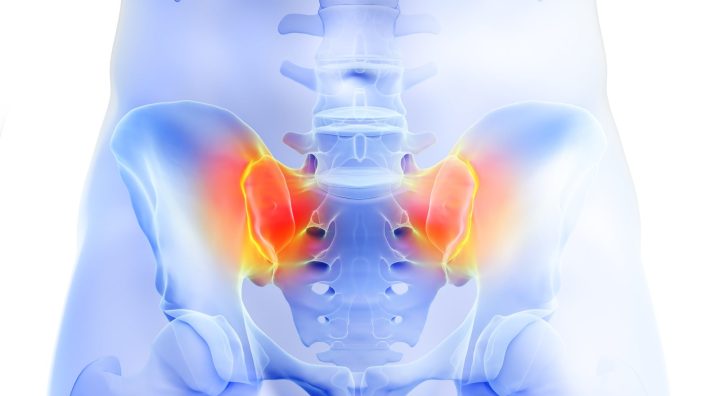A sleep disorder strangely named “exploding head syndrome” may keep more than 10 percent of people awake at night by inflicting them with crashing sounds that only they can hear. A sufferer and an expert discuss.
Guest Information:
- Walter Michka, health blogger and exploding head syndrome sufferer
- Dr. Brian Sharpless, Assistant Professor of Psychology, Washington State University and author, Sleep Paralysis
Links for more info:
17-44 Exploding Head Syndrome
Nancy Benson: The range of maladies people may suffer is incredibly wide, from minor inconveniences to life-threatening. But when someone says they experience something called “exploding head syndrome,” you might imagine a scene from a Stephen King novel. It’s not as scary as its name suggests, but exploding head syndrome is a real disorder… And it can be problematic.
Walter Michka: Sound asleep, middle of the night, all of a sudden there’s this huge crashing sound that I hear. And I was totally positive that something had fallen in the kids’ bedroom. In my mind I’m picturing shelves falling, books falling, falling onto children. I mean, I don’t know what it was because it was a loud crash.
Benson: That’s Walter Michka, a health blogger who has experienced exploding head syndrome.
Michka: I bolted up in bed and grabbed the flashlight that I have and I started sneaking around the upstairs trying to find what had fallen because it was a loud crash. Couldn’t find anything so I thought I’ll wait till the morning see what happened and the kids seemed okay so I just went back to bed and in the morning there was nothing. Nothing fell, nothing had happened, I had no idea what it was.
Benson: And that is exploding head syndrome. Just when you’re falling asleep, you hear a loud crash or banging noise that startles you awake. You swear you heard it, and get up to investigate, but eventually realize… it was all in your head. The name of the syndrome is obviously colorful, but Michka isn’t so sure that’s a good thing.
Michka: It kind of almost trivializes it, the name. It kind of makes it sound silly or like a weird sci-fi movie or something. It is a little disconcerting when you have it, when your head explodes in the middle of the night. Kind of feel like it should have a better name but it hasn’t come around to that yet.
Benson: But Dr. Brian Sharpless says the name is what everyone remembers. Sharpless is assistant professor of psychology at Washington State University and author of the book “Sleep Paralysis.”
Brian Sharpless: It’s certainly a dramatic name and it was coined by an English psychiatrist by the name of J.M.S. Purse. If you go through the literature it’s been called various things and they’ve all been fairly dramatic. In the 1920s it was called a snapping of the brain. If you go back to Silas where Mitchell’s original descriptions in 1876, he called them sensory discharges. So, it’s certainly an attention grabber.
Benson: So yes, the name is unusual, but Sharpless says exploding head syndrome is more widespread than most people think.
Sharpless: I was able to find some descriptions of it going back as early as 1876. There’s been so little research on it we really don’t know if it’s increasing or decreasing. The clinical lore said that it was essentially a rare disorder that only occurred in people over the age of fifty. So in order to test that out I interviewed, along with my grad students, over two hundred people using a clinical interview I developed. What we found was it actually isn’t rare. We found it in 13.5% of the sample, with much higher rates if you suffer from another sleep disorder called isolated sleep paralysis. So, it didn’t seem to be rare in a sample of relatively young students.
Benson: Exploding head syndrome isn’t physically harmful as its name may imply, so some doctors dismiss it. But Sharpless warns that the psychological effects can take a heavy toll.
Sharpless: By themselves these episodes are harmless if they are truly exploding head syndrome. By definition you can’t have any more than a mild sensation of pain during the events. If you’re having significant pain during it you should probably definitely get it checked out. Where it becomes a problem is in how people respond to it. I’ve seen cases of people that experience it five to seven times a night. You can imagine that causes quite a bit of sleep disruption. It can be associated with a lot of fear. People might think there’s something’s really wrong with them, [that] they may be having subarachnoid hemorrhages, or that they might be having all sorts of things going on. They might actually try to avoid going to sleep or start having fear responses even when going into their bedroom.
Benson: For them, anxiety can lead to sleepless nights and dead tired days. For others, exploding head syndrome really is no big deal. Doctors don’t know what triggers the perception of exploding sounds…but Sharpless says it seems to be related to sleep paralysis, where a person wakes up temporarily unable to speak or move.
Sharpless: As with any relatively understudied phenomenon there are a lot of theories out there. The one that I think makes the most sense is that you have a part of your brain stem called the reticular formation. One of the things it’s responsible for is shutting down your body as you go to sleep. What it’ll do is kind of like a computer shutting down. It’ll start inhibiting your visual neurons, your motor neurons. What we think happens in exploding head syndrome is that instead of shutting down your auditory neurons, it makes them fire all at once and that’s why you get this really massive loud undifferentiated noise. It may be related to sleep paralysis for the same part of the brain, because in sleep paralysis the reticular formation actually inhibits your motor neurons, which is normal during REM sleep. But when it happens when you’re awake, as it does in sleep paralysis, it’s pretty scary, too.
Benson: Since exploding head syndrome is not completely understood, Sharpless says that doctors have few treatment options. For patients who are disrupted by it, specialists have prescribed several different drugs… But results are mixed.
Sharpless: There are some case reports in the literature of different ways to treat it. Certain psychotropic drugs might be helpful, particular types of anti-depressants in a small number of cases have been shown to be useful. The anti-convulsant drug called topirimate, which is brand named Topimax, has been reported to not reduce the frequency of the episodes, but it turns the volume down. So [the episodes] are less distressing when they happen. But probably the easiest thing to do to help people is just to educate them about it and reassure them that it’s not a dangerous phenomenon. It’s just a strange sort of misfiring in your brain. But if it is causing you problems or it is associated with pain you should certainly go to a doctor and check it. Look for a sleep specialist who has experience with what is called parasomnia, which is the class of disorders that exploding head syndrome is in.
Benson: Luckily for Michka, his exploding head syndrome was one of those harmless cases. After a few occurrences, it just sort of… Went away. He says if he were to give advice to someone experiencing the same things, he’d keep it simple.
Michka: Obviously tell them “you’re not crazy, and “it’s not debilitating.” From what I’ve read it’s not dangerous in anyway. To me I tend to just roll with it.
Benson: Though the name suggests otherwise, exploding head syndrome is a manageable condition for most sufferers. For the unfortunate few, though, every night seems noisy and exhausting. Dr. Brian Sharpless invites listeners to check his website at briansharpless.com. You can find Walter Michka’s blog at chicagonow.com/open-heart or through a link on our website, radiohealthjournal.net. Our writer-producer this week is Evan Rook. Our production directors are Sean Waldron and Nick Hofstra. I’m Nancy Benson.
Sign up to receive email updates
Enter your name and email address below and I’ll send you periodic updates about the podcast.











Leave a Reply